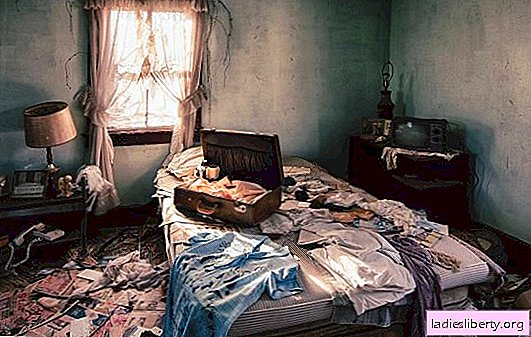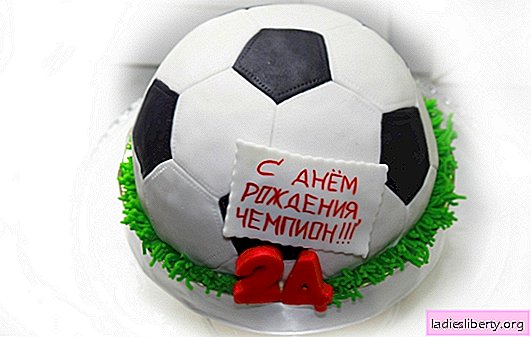
Each in due time has to face the death of family and friends. Unfortunately, knowing that all people are mortal and that death is a natural, inevitable process does not reduce the grief of loss. In any case, we try to worthily lead the deceased to the last journey and pay him the honors that he deserved.
After the funeral, the question often arises: what to do with the things of the deceased?
Some people instantly get rid of most of the deceased, as they are the cause of painful reminders of someone who cannot be returned.
Others do not want to part with any object that stores a piece of a departed loved one.
But surely few people are familiar with the rules of storage, use and disposal of things of the deceased.
We’ll talk about them today.
What does religion say?
Any item that a person constantly uses, retains a piece of his soul. Therefore, many religions prescribe to get rid of almost everything that the deceased used.
Like, if this is not done, he will not be able to go to another world. However, you can get rid without regrets, for example, from well-worn, inexpensive and memorable things. But how to part with what is dear to the soul, which is valuable or can bring practical benefits?
What does Christianity say about this?
Christianity prescribes to deal with the things of the departed at its discretion. The main thing is that they are useful to others. Some of them can be left as a keepsake, some can be handed out or taken to church.
Orthodox Christians prefer to hand out most of the deceased's personal belongings.
Some believe that in the 40-day period from the date of death, it is impossible to dispose of what belonged to the deceased.
It is believed that all this time the soul is in an unstable, rebellious state. On the 40th day, the soul is made a decision whether it is worthy of paradise or it will have to torment itself forever in hell. That is why some people believe that all this time it is better not to touch the things of the deceased at all. It is necessary to wait for the moment when the last strings connecting it with the sublunar world will break.
According to another opinion, giving away the deceased's things is best in the course of 40 days.
It is believed that in this way all the earthly affairs of the deceased will be completed, and his soul will find peace in the afterlife. In addition, distributing to the needy the things of the deceased with a request to pray for him, relatives provide his soul with a more enviable future in the afterlife.
The only thing the clergymen do not advise is to throw things away.
But if you need to get rid of a thing, it is best to burn it. To do this, it is not necessary to go to the forest and make a ritual bonfire there: you can just take things to the trash - they will be burned afterwards.
However, in the event that things from the deceased were inherited by will, it is more rational to wait 40 days and only then dispose of them.
It is also impossible to divide the property of the deceased during this time - out of respect for him. At first, after the death of a relative or close person, one should intensely pray for his soul, and not engage in sharing the material wealth that has remained of him.
In terms of esotericism
As you can see, the Christian religion cannot clearly answer the question: what to do with the things of the deceased? Moreover, clergy constantly urge not to succumb to superstitions regarding the things of the departed and not to attribute to them any supernatural properties.
The followers of mystical teachings do not agree with them: they believe that every thing preserves the energy of its master, and the thing of the one who died becomes forever tarnished by the energy of death - terrible, cold, addictive.
This is especially true of the clothes of the deceased - it can be really dangerous for its new owner.
Bioenergy believes that she could capture all the negative that a person experienced immediately before death, or even a few months before it.
A person wearing such clothes can suddenly become aggressive, depressed, painful and unfortunate. However, all this applies only to the clothes that the deceased most often wore. But if you still really want to wear one of the things of someone who has gone into another world, then you need to clean them before using.
The most popular way to clean a thing from negative energy is to wash it in saline.
First you need to soak the thing for some time in cold water with salt, and then wash, dry and iron. This is not enough for some, and after all these manipulations they additionally sprinkle the thing with holy water. Other things change into something else - this also helps.
However, there are those who believe that nothing can clean things from the "dead" energy, and in no case should they be worn.
In some cases, such categorization is quite appropriate.
If a person died from a serious illness, then everything that he used (for example, clothes, bedding, and even dishes) is really better to burn.
Jewelry, of course, cannot be thrown away - you can simply melt it into something else. Everything else that, as it seems to you, left traces of the illness of a deceased relative, but that cannot be thrown away (for example, furniture), must be thoroughly cleaned with water and salt, and then sprinkled with holy water.
This is especially true for children's things. If the parents of the deceased baby do not want to part with what reminds them of their child, then these things can be left, but hidden away and not passed on to anyone. However, both psychologists and esotericists advise to leave a few things in memory of the baby, and get rid of the rest.
If for some reason you took the thing of a deceased child, pray and burn the gift.
In other cases, using the things of the deceased, from the point of view of esoterics, although not recommended, but still possible.
But things are different with shoes.: it is under no circumstances recommended to be worn by relatives and friends of the deceased. It is believed that all the negative energy in the human body accumulates below, at the feet, so shoes are a great accumulator of negativity. This negative can easily be transmitted to the relatives of the deceased.
But to strangers, these things will not do anything wrong: give them wholeheartedly to those who need them. By the way, the Jews have an interesting belief in this matter: they also decided to give out most of the things of the deceased. The exception is shoes.
With jewelry, too, is not easy. It is believed that if the deceased was a gentle and responsive person, then relatives can safely wear his jewelry - they will bring them only good.
But if the owner of the jewel did not have the most pleasant character - was aggressive, grouchy and envious, - then these traits can go to the new owner. Such jewelry can be taken to a jewelry workshop and melted into something else - the fire will burn out all the negativity.
A watch, by the way, also accumulates the energy of its owner and stores it for a long time.
In addition, if the jewelry belonged to a relative who died in his youth, was divorced or suffered from a serious illness, you should never wear it. Otherwise, the new owner of the product will repeat the difficult and tragic fate of its previous owner. E
if you got such a jewel with a "bad" fate, take it to the workshop and melt it into something else, but if you can’t do this, just put it in a secluded place to get and admire it from time to time, but never never wear it.
Regarding the pectoral cross you can hear different opinions. Some say that you can’t wear it. Others, on the contrary, are sure that the pectoral cross of a loved one will bring them only the good.
Churchmen wearing a pectoral cross of a relative who has gone into the other world do not see anything bad if they first consecrate it. But if you are still afraid of negative consequences, then just take it to the temple as a donation or to decorate some kind of icon.
Phones, tablets and computers - all these are high-tech things, so often people do not know where to look for the answer to the question of what to do with them after the death of their owner. There is no unequivocal opinion here.
Like other things, the phone and tablet can be cleaned and used. But household appliances and other utensils can be used without any fear.
What to do with the room of the deceased?
The room of the deceased must be put in order and no earlier than the ninth day after the sad event.
All that is unnecessary, old, spoiled is thrown away, and the rest is cleaned with saline.
The personal belongings of the deceased are removed away, and memorabilia remain in sight. After all the manipulations, you can sprinkle the place with holy water.
Books, records, documents and awards are advised to be hidden in the far corner. Letters and personal diaries can be left or burned.
If a person was seriously ill and tormented before death, then his room is being repaired.
Esoterics, psychics and adherents of many religions claim that it is better to throw out the bed on which the person died, with all bedding.
Is it possible to leave photos of the deceased in visible places?
Adherents of esoteric teachings will tell you that it is forbidden to store pictures of deceased relatives in visible places - they say, they carry a "dead" energy.
Paradoxical as it may sound, psychics do not even recommend looking at these photos.
But the answer of the clergy will be the same as in previous cases: photographs of the deceased can be stored wherever you want.
And in fact, in the old days there was a tradition of hanging portraits of members of a kind on the walls. And it never occurred to anyone that these images somehow harm the living in the house.











